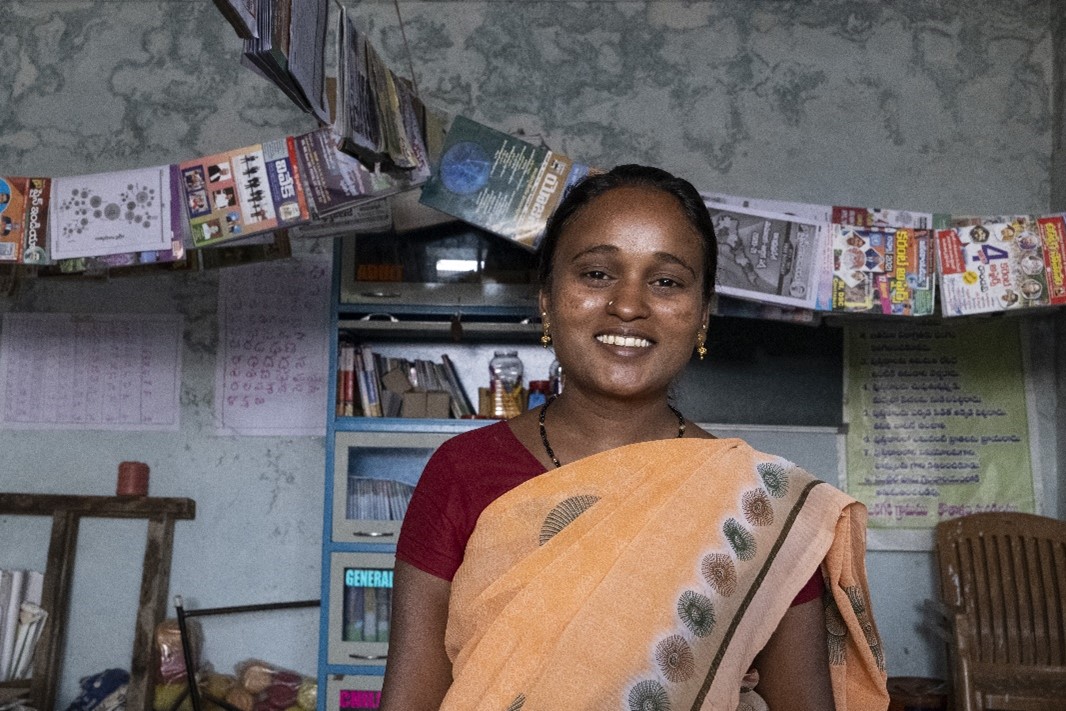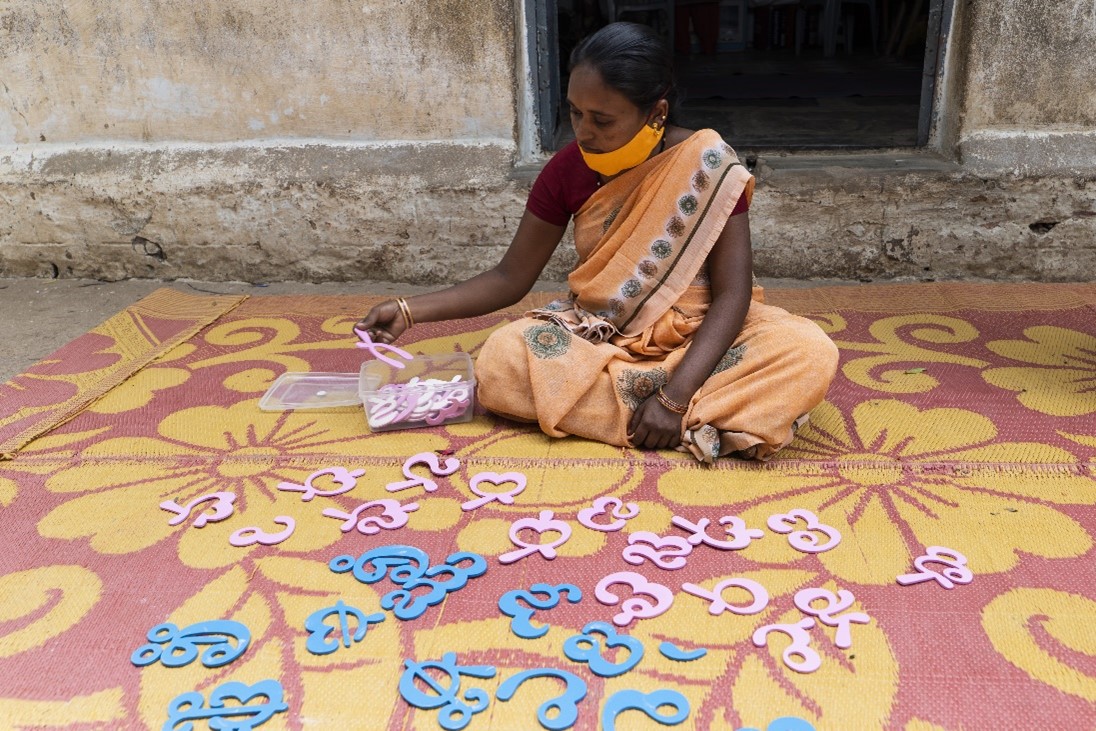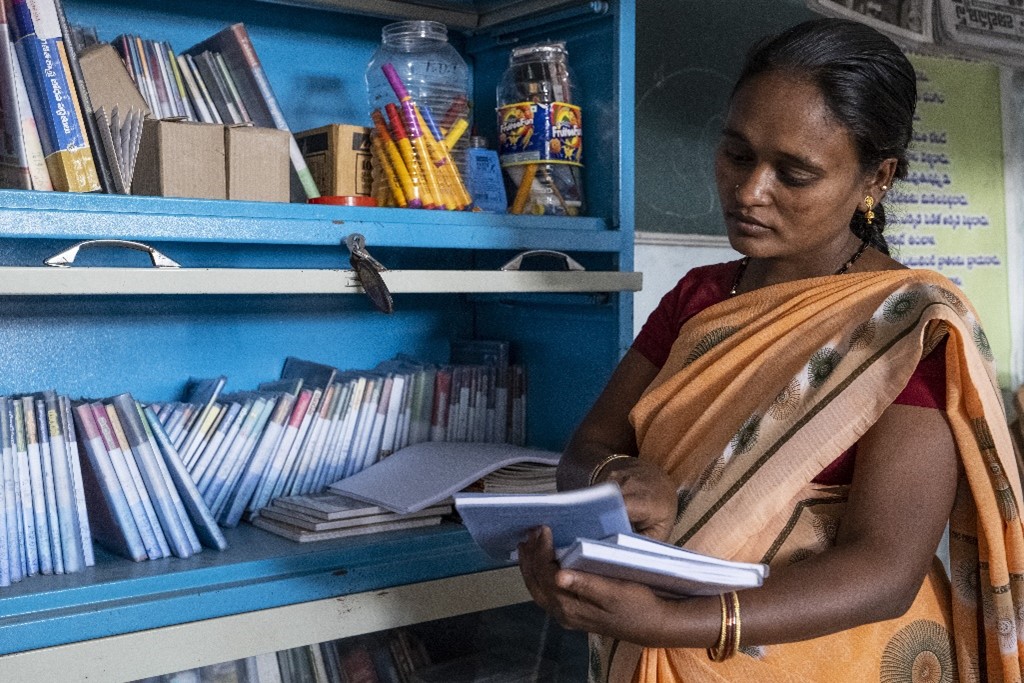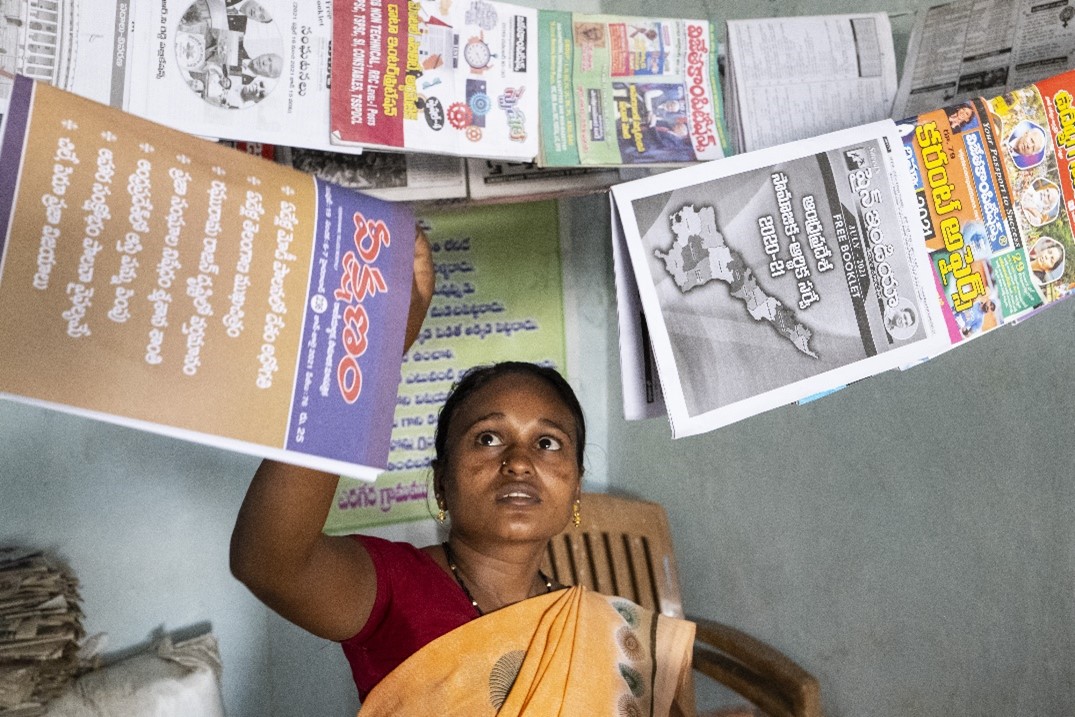Home > Blogs
A Librarian-Teacher’s Resolve
With a school bag hanging loosely on her shoulders, six-year-old Bojamma asked her friend if she would join her at school. “I want to, but I cannot. I have to go to the field for work,” her friend replied.
Twenty years later, sitting on a rusted iron chair inside a classroom, Bojamma now teaches that same friend and many like her who had to work in the fields.
Born to a poor family of six in the Yerigeri village in Andhra Pradesh’s Kurnool district, Bojamma is now an RDT librarian-teacher in her home village. Her father was a daily wage laborer who spent extra hours in the fields to earn more for his children’s education.
“When I was growing up, it was normal for children to go to fields to pick cotton and contribute to family income,” says Bojamma while arranging the books in her RDT library classroom. “But my father was determined to send us to school, to get us educated so that we would live a dignified life.”
Bojamma’s day starts at 7:00 am in the library. The first batch of students, mainly school children, visit the library to seek her help with school projects. She not only helps them but makes sure that they put their creative skills to use as well by giving them some extra-curricular tasks and resources.
In the afternoons, she leads learning activities for adults who did not get the opportunity to learn when they were younger. It is during the late evenings, around 8:00 and 9:00 pm that she teaches the adults who return from fields after a day’s hard work.
“I teach my students to write on sand or form alphabets with stones or cardboard cut-outs before they pick up a pen. This method is helpful especially with the adults as after 30 or 40 years of their lives they are starting fresh,” she explains.
In a candid conversation with Bojamma, who is one of the youngest RDT village librarian-teachers, she shared her experience of being a teacher and an instrument of social change.
You mentioned that you now teach your friends who missed the opportunity to study as children. How would you describe this experience?
I remember going to my friends’ parents and asking them to let my friends go to school with me. However, they simply used to tell me that children who go to school and children who do not are equal. Back in those days, I did not know how to explain the importance of education. But now, after almost two decades, I not only teach my friends, but I also teach some of their parents! To be able to see them hold a pen and write basic words with pride is an experience of a lifetime for me!
What do you enjoy most about teaching?
The happiness of my students motivates me to continue pursuing my profession. Especially with women, as most of them never got the opportunity to go to school, they have spent their lives taking care of their families so when they learn how to pick up a pen and write their names, they do it for themselves. When I teach a woman, I teach an entire family!
If you can describe your job in a few words, which words would you choose?
I will describe my profession in just three words: Compassion, understanding and patience. These three qualities can help teachers decipher the needs of students, especially their background, their struggles and their abilities. This helps us to invest in our students for their holistic development.
What has been the most memorable moment in your career?
Honestly, I believe every day is different and memorable in its own way. Whenever my students pass their exams and move forward to their next class, we celebrate their achievement with some snacks and songs!
Text Adapted by VFF USA
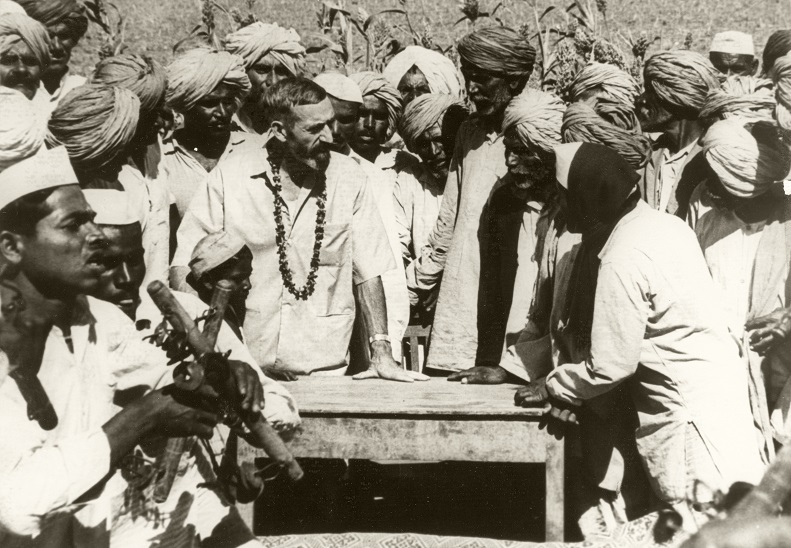
Commemorating 55 Years of the Rural Development Trust (RDT)
01/22/2024Today we commemorate the arrival of Anna Ferrer and Vicente Ferrer to Anantapur and the be...
READ MORE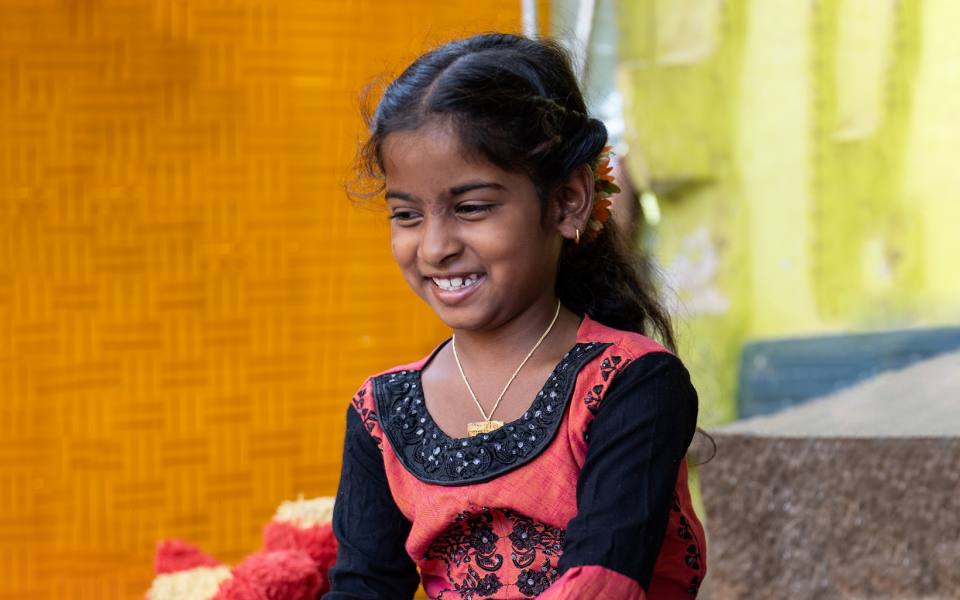
Mahalakshmi, The Little Teacher
03/17/2023Mahalakshmi lost her vision at just three years old. Her mother, Nageswari, says her daugh...
READ MORE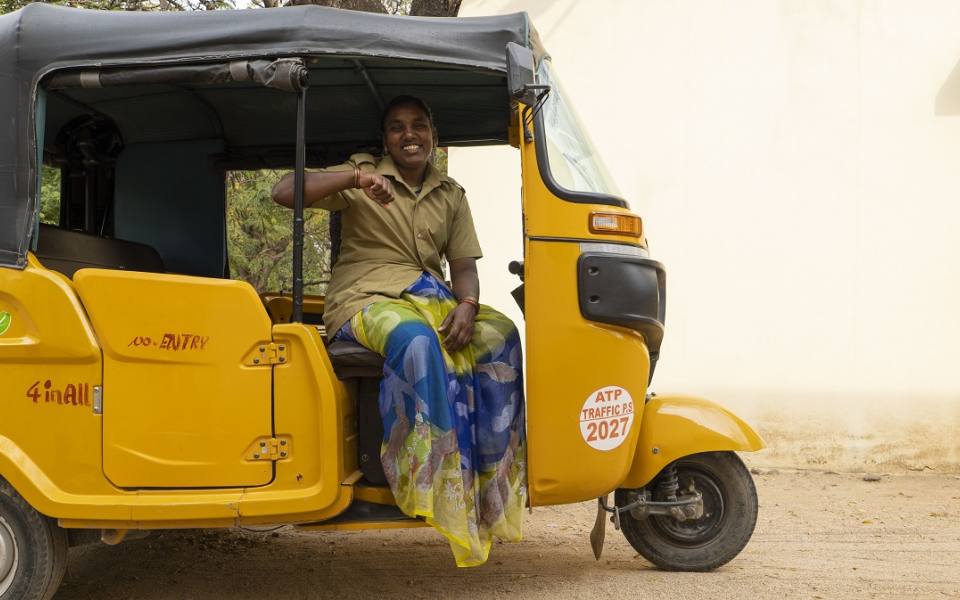
Riding Towards Equality
02/27/2023In rural India, driving is still considered a male job. Twenty-three women from Anantapur ...
READ MORESupport our work to help individuals and communities affected by COVID-19
Would you like to know how we use the funds?LEARN MORE
 October 4, 2021
October 4, 2021